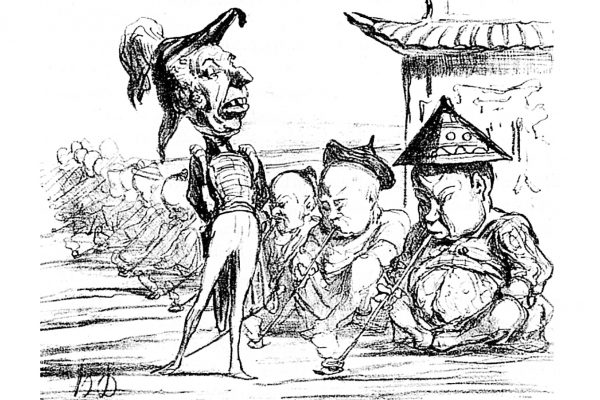by AIDAN O’BRIEN

The circle is complete. “Global trade”, as we know it, began in Hong Kong in the 1840s and is coming to an end in Hong Kong in the 2020s. This tiny Chinese island has the misfortune to be the place where “global traders” conspire against global justice. It started with Britain’s Opium Wars and is ending with America’s Pivot to Asia. Under the cover of “global trade” imperialism has tried to conquer China. It may have started successfully in the 1840s but it is ending ingloriously in the 2020s.
The paradox is that global trade is causing the downfall of “global trade” as we know it. In other words, fair trade among the sovereign nations of the Global South is supplanting the inequitable trade between the Global North and the Global South.
In modern times, China has been the ultimate challenge for imperialists. The Americas, Africa, Arabia and India were all subjugated easily by the west. And after World War Two, even Japan became a western hostage. China however has been out of reach—it’s independence being an enigma to Europeans and Americans. From Marco Polo to Mike Pompeo, China has been a mystery to Christian crusaders.
But there’s nothing mysterious about China’s rejection of western subterfuge. In 1793 the Qing Emperor wrote the following to King George III: “Our celestial empire possesses all things in prolific abundance and lacks no product within its borders. There is, therefore, no need to import the manufactures of outside barbarians in exchange for our own produce.” 1
In short, if Britain wanted tea from China it had to pay with silver. Perfidious Albion, however, had another idea: flood China with “heroin” and, in the process, reverse the flow of silver. When China resisted this poisoning of its people, the British, in 1842, stole Hong Kong and imposed upon the Chinese the rule of the opium den (the Treaty of Nanjing). It was the beginning of a century of humiliation for China. And it was the last part of the jigsaw in the west’s version of “global trade”.
In fact, after the abolition of the African slave trade in the British Empire (1807), the opium trade in the South China Sea became the largest and most lucrative part of the jigsaw. Not only did Britain’s elite traders turn to narco-trafficking in China but so too did the elite traders of the USA. Britain’s East India Company and the British firm Jardine, Matheson & Company led the way. And Americans, like Samuel Russel, Thomas Perkins, Warren Delano and Robert Forbes, followed.2
They followed them to the “narco-state” par excellence: Hong Kong. Upon this stolen island the British created a dystopia that became a model for imperialism not just in Asia but everywhere. Enormous amounts of drug money—mixed with banking, racism and reaction—produced a global system full of contempt for justice. A system that was to be later found in cities like Shanghai (before Mao), Saigon (before Ho) and Havana (before Fidel). In more contemporary times, this toxic paradigm emerged in Panama City, Miami, Dubai and every other financial district in the world.
Monthly Review Online for more
